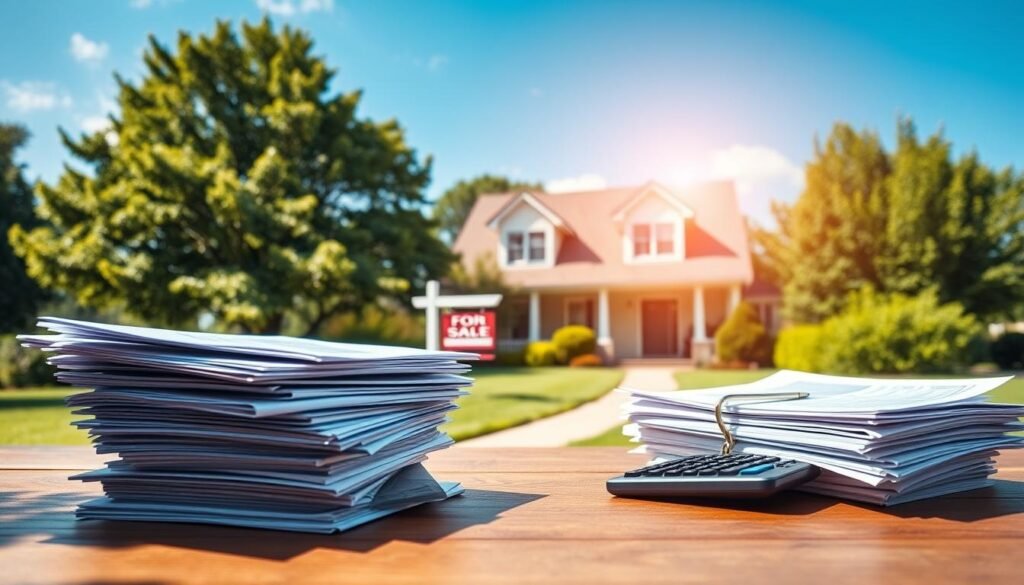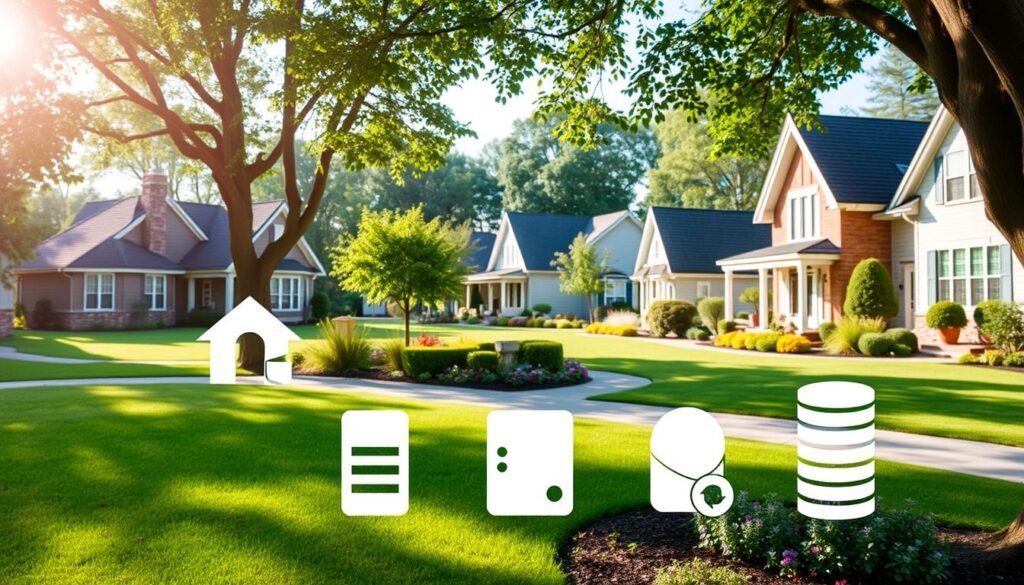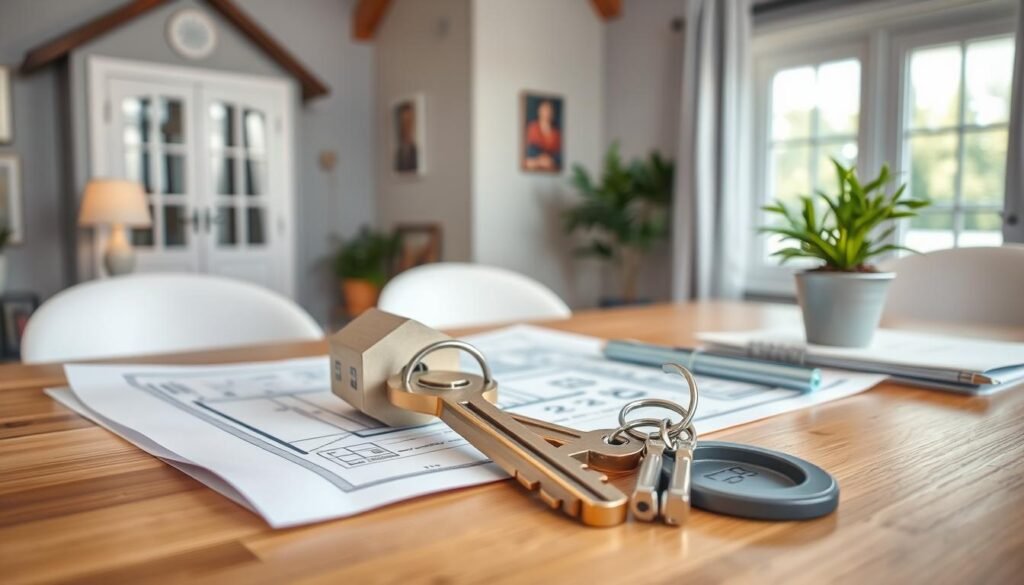This post may contain affiliate links, which means I may earn a commission if you purchase through these links at no extra cost to you
When I first became a homeowner, I had no idea how much property tax breaks could actually help. But learning how to lower my tax bill meant more money I could put toward upgrading my home—and a lot less stress come tax time. In Illinois, for example, the homestead exemption alone can knock up to $10,000 off your home’s taxable value. There are also special savings for seniors, veterans, and people with disabilities. It might take some digging, but trust me, it’s absolutely worth it.
Table of Contents
ToggleWhat is a Property Tax Exemption?
Knowing how property taxes work is key for homeowners who want to save money. A property tax exemption lowers the assessed value of your home. This means you pay less in property taxes. These exemptions depend on things like if you own the home, live there, your age, if you have a disability, or your income level.
In Cook County, homeowners get big perks from property tax exemptions. They can reduce their Equalized Assessed Value (EAV) by $10,000 for homes, condos, and co-ops. Nearby counties offer an $8,000 reduction, while other counties have a $6,000 limit.

The Senior Citizen Homestead Exemption in Cook County offers an extra $8,000 off the EAV for those 65 and older. This is on top of the regular $10,000 exemption. Seniors can save as much as $300 yearly on property taxes. Together, these savings can reach up to $750. Also, the Senior Assessment Freeze keeps property taxes from going up for homeowners over 65.
Veterans who have just come back from serving can get a $5,000 EAV reduction for two years. This is if they own their home and live in it as of January 1. Veterans with disabilities, and their surviving spouses, get even more EAV cuts based on the disability.
The Home Improvement Exemption allows for up to $75,000 in upgrades without a higher tax for four years. Also, a tax deferral program offers loans to seniors, helping them pay their property taxes.
Learning about these exemptions can lead to big savings. Knowing if you qualify can help you use all the exemptions you can.
Types of Property Tax Exemptions
Learning about property tax exemptions can save you money. You could get exemptions for homestead, seniors, veterans, disabilities, or low income. Each type helps in different ways to ease your financial load.
Homestead Exemptions
Homestead exemptions reduce taxes on your main home. For example, in Cook County, you can save up to $10,000. Other areas offer different savings, based on your home’s value.
To qualify, your home must be your main residence on January 1. Also, some exemptions limit how much your home’s value can rise each year.

Senior Property Tax Exemptions
Senior tax exemptions help older homeowners with their finances. They consider your age and income. This way, seniors can keep their homes and pay less in taxes.
These exemptions reduce your home’s taxable value. Once eligible, you automatically save each year. This gives seniors ongoing relief.
Veteran Property Tax Exemptions
Veterans have access to special tax exemptions. Some exemptions decrease housing value for veterans with disabilities. You could save up to $100,000.
Other programs offer reductions or full exemptions based on disability severity. These help veterans save money on property taxes.
Disability Exemptions
People with disabilities can get tax breaks. The Homestead Exemption for Persons with Disabilities reduces your home’s taxable value by $2,000. It helps those living with challenges to ease financial stress.
Low-Income Exemptions
If you have a low income, you might qualify for tax relief. These exemptions keep your taxes manageable based on your earnings. For instance, some programs cap yearly increases in your home’s taxable value.
This ensures families under financial pressure can keep their homes. It’s designed to help those who need it most.
Finding the right exemption can make a big difference. By knowing and using these breaks, you can save money and keep your home affordable.

To apply for these exemptions, you need to confirm your home is your main living place as of January 1 of the tax year. You must send in the completed claim forms within 30 days after getting a Supplemental Assessment notice. This ensures your tax bill includes the exemption. If you file late, between February 16 and December 10, you still get some relief, but it’s reduced to 80%.
The homestead exemption is crucial for protecting homeowners from tough financial issues, like debt collectors or bankruptcy. Starting January 1, 2022, it shields at least $313,200 to the median county sales price for a house, up to $626,400. A 2021 law now protects $300,000 to $600,000 of a homeowner’s equity from creditors.
This exemption is automatic but filing a declared homestead gives even more equity protection. It means homeowners can keep money from a home sale up to the exemption value. But, there are limits, especially if the home backs a loan, involves federal creditors, or is sold voluntarily without the homestead declaration.
How to Claim Your Property Tax Exemption
Confirming Eligibility
First, check if you meet the eligibility criteria for tax exemptions. Eligibility depends on age, income, disability, veteran status, or if it’s your main home. For example, special exemptions exist for senior citizens, veterans, and STAR program qualifiers. Make sure to research your state’s requirements or speak with local tax authorities.
Gathering Required Documents
After confirming your eligibility, gather all necessary documents. This usually means having your proof of residency, income statements, and proof of age, disability, or veteran status. Keeping these documents organized is key for a smooth application. Consider using an escrow account to split your property tax payments into monthly parts.
Submitting Your Application
Next, fill out the required forms and submit them to your local tax office. Make sure all the information is correct to prevent delays. Some states offer multiple exemptions, like the homestead exemption that lowers the taxable value of your primary home. By carefully following guidelines, you can avoid common mistakes.
Common Deadlines and Timelines
The timing of your application is very important. Missing deadlines may push your exemption to the next year. For instance, filing a claim between February 16 and December 10 allows you to get 80% of the exemption for that year. Be quick with your documents and application to keep your exemption valid. Homeowners need to live in their home as their main residence within 90 days after ownership changes or new construction to stay eligible.
For further help or questions about your exemption, reach out to your local assessor’s office.



